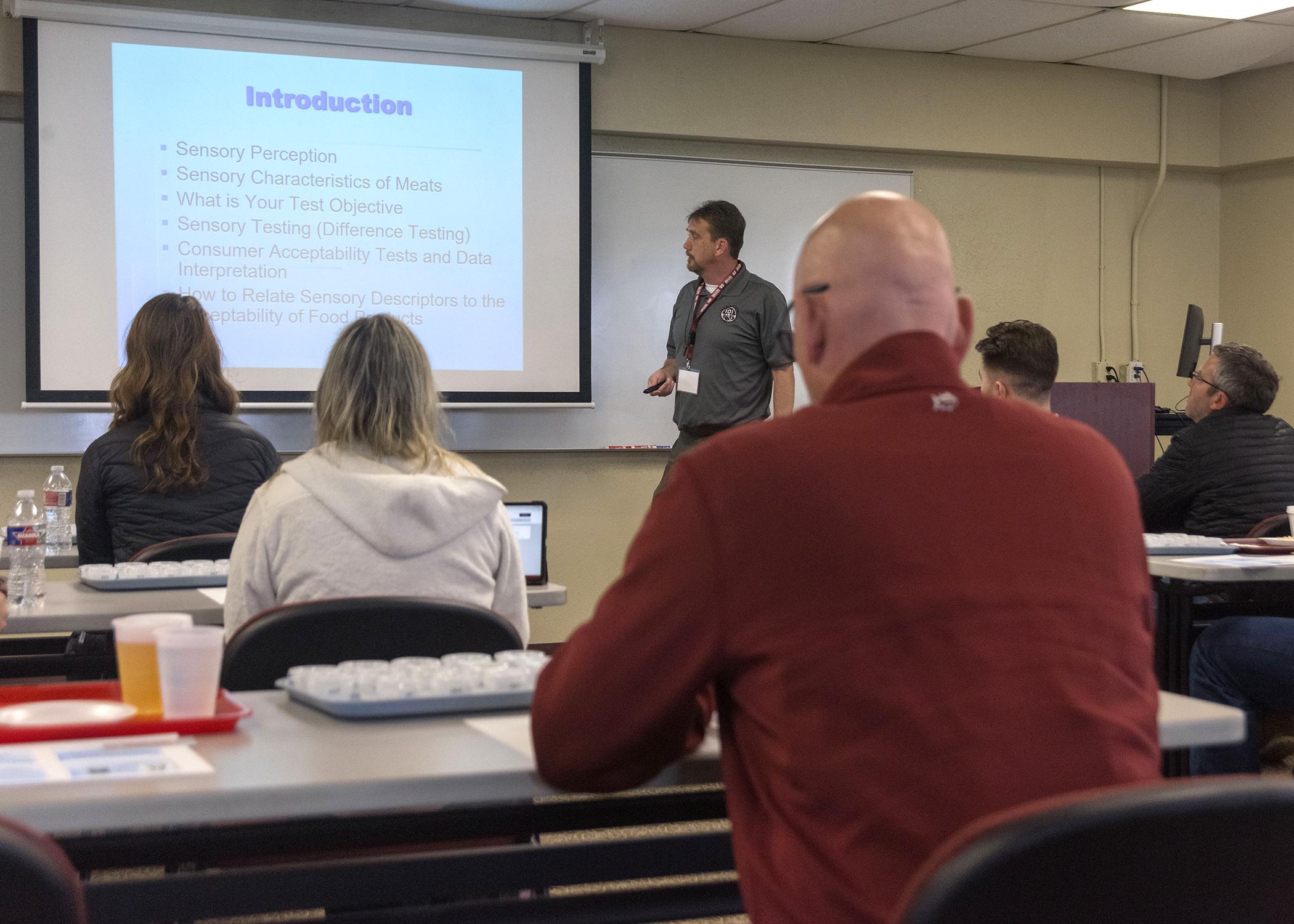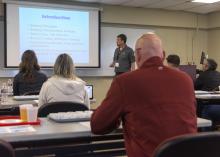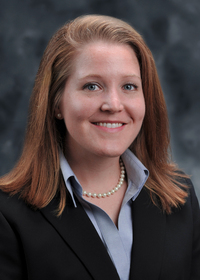Marination 101 in April supported food industry
STARKVILLE, Miss. -- Representatives of many of the industries that supply America’s restaurants and grocery stores gathered at Mississippi State University in April to learn ways to perfect their trade and enhance their products.
MSU hosted 46 attendees plus presenters and students at the 15th annual workshop “Marination 101: The Flavor of Science,” organized by the MSU Extension Service.
Chad Robertson, executive technical sales at Reed Food Technology/TasteMaker Foods headquartered in Pearl, Mississippi, said high-profile customers attend this annual event.
“I’ve been in the industry for 20 years, and this has become the industry standard marination course,” Robertson said. “I want to be a part of it and help out.”
Courtney Crist, Extension food safety specialist in the MSU Department of Food Science, Nutrition and Health Promotion, coordinated the workshop which had both lecture-style and hands-on components.
“Our attendees came from across the country, and they work with beef, pork, lamb, catfish, poultry, spices and major food manufacturers,” Crist said. “Among those who participated were those representing some of the major ingredient suppliers for McDonalds, Chick-fil-A, Jack in the Box, Subway and more.”
“Organizers do a good job of gathering a diverse attendee list,” said Colby Hall, director of supplier relations for Processor’s Choice in Moody, Alabama. Because of that, this conference allows for quality networking opportunities among attendees.
Each year, the workshop has a variety of sessions that either provide an overview of a topic, like an exploration of flavor, fragrances and how taste works, or that dive deep into a subject, such as the functionality of salt antimicrobial issues all related to the process of marinating muscle foods.
Gary Dunlap, research and development and commercialization manager at Clemens Food Group in Hatfield, Pennsylvania, spoke on the foundations of marination at the workshop.
“This is about putting tools in your toolbox,” Dunlap said. “Your ability to understand the need of the end-point customer is critical. Sometimes we rush out to solve the problem without realizing or understanding what the problem is.”
More than half of the three-day workshop was spent on hands-on activities. Participants toured a commercial poultry house, learned about the fabrication of retail cuts of beef and created marinades, batter and breading of various meats. They also studied ingredient functionality, injection solutions and mechanics and labeling regulations.
Wes Schilling, professor in the MSU Department of Food Science, Nutrition and Health Promotion, led a sensory science experience focused on taste test panels and the sensory perception of food.
“We sense food first with sight, then smell, texture and flavor,” Schilling said. “Sensory testing is often done to determine if people can tell a difference when an ingredient is substituted in a food product. You need to know as much as possible about your end consumers as you do about the product itself.”
Schilling guided participants through an exercise to determine their own sensitivity to taste, then had them rate chicken and catfish products based on how much they liked their flavor.
Byron Williams, Extension muscle foods processing specialist in the Department of Food Science, Nutrition and Health Promotion, coordinated the Marination 101 workshop with Crist.
“This event was designed to be an information sharing, networking and learning experience from some of the top subject matter experts in the country without hard sales pitches,” Williams said. “I am proud to have been a part of this program since its inception at MSU and to meet so many other experts across the country and best of all, to see and hear about changes many attendees implement immediately in their operations to make huge, positive differences in products and processes.”
For more information on MSU’s support of the food science industry, visit .






